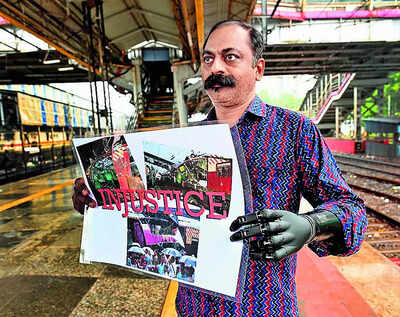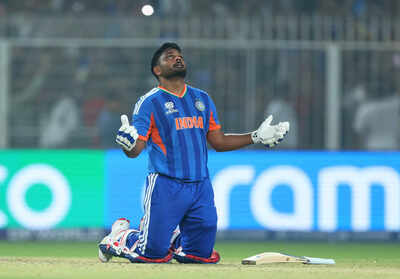2006 Mumbai train blasts: HC rubbishes reliability of prosecution witnesses | India News

MUMBAI: Bombay HC Monday ripped apart the trustworthiness of the prosecution’s witnesses in the 11/7 train blasts case and held that the special executive officer (SEO) who conducted the test identification parade — a primary step following the arrest of an accused — lacked the authority to do so.The parade of various accused was conducted by two SEOs, one of whom ceased to hold the post in 2005. High court said the prosecution failed to bring any evidence on record to show that he continued to be the SEO when the test identification parade was conducted by him on Nov 7, 2006. Hence, the identification of three accused—all alleged planters—stands vitiated and is discarded, it stated.However, prosecution witnesses can identify accused in court during the trial, but HC found such identification lacked the credibility it needed.HC said the first of six categories of eyewitnesses produced by the prosecution against the accused were two taxi drivers who took two accused, both alleged planters, to Churchgate station; they identified the accused. A total of eight witnesses identified the accused in test identification parades and also in court. Apart from the two taxi drivers, four claimed to have seen the accused planting the bombs in the trains. The seventh one claimed that he saw the accused preparing bombs, and the eighth said he saw the hatching of the conspiracy and identified the accused in court. One witness claimed to have seen the suspects after they alighted from the train. His statement helped in creating two sketches, but he was not asked to identify the accused in court, HC noted.HC went through 44,000 pages of recordAfter more than six months of hearing in the 2006 serial train blasts case, and going through more than 44,000 pages of record, Bombay HC concluded that Maharashtra Anti-Terror Squad (ATS) had no case. It said the prosecution failed to prove what kind of explosive was used: no importance could be attached to the claims of recovery of RDX, circuit boards and detonators, as prosecution failed to prove custody chain before analysis.In a detailed analysis of the case and evidence on record, Bombay HC said while the “prosecution has referred to al-Qaida Manual for many things, nothing is brought on record about it”.Over two decades ago, bombs planted on first-class compartments exploded during peak evening commute at seven locations on Western Railway suburban network. They ripped apart metal bogies and lives between Khar Road and Santacruz, Bandra and Khar, Jogeshwari and Mahim Junction, Mira Road and Bhayander, Matunga and Mahim Junction, and Borivli.The prosecution case was of sophisticated explosive RDX being used, of accused being members of terror outfits like SIMI who received training in Pakistan, and of 15 wanted accused, mainly Pakistanis. While the trial court’s special MCOCA judge, Y D Shinde, in 2015 said special public prosecutor Raja Thakare had rightly described the accused as “merchants of death” and Thakare argued that the trial verdict could not be dislodged and the noose be confirmed, the HC noted the prosecution case had unravelled completely.The dozen men were in prison all along since their arrests in 2006. While one of them died after the Covid pandemic in 2021, the 11 whose appeals were allowed joined on Monday via video-conferencing from prisons across the state, including Pune’s Yerawada and the prisons in Nashik, Amravati and Nagpur.An alleged planter, Naved Khan, from Nagpur prison, told court he suffered “needlessly for 19 years” and while lives were lost, innocents could not be hanged either.





